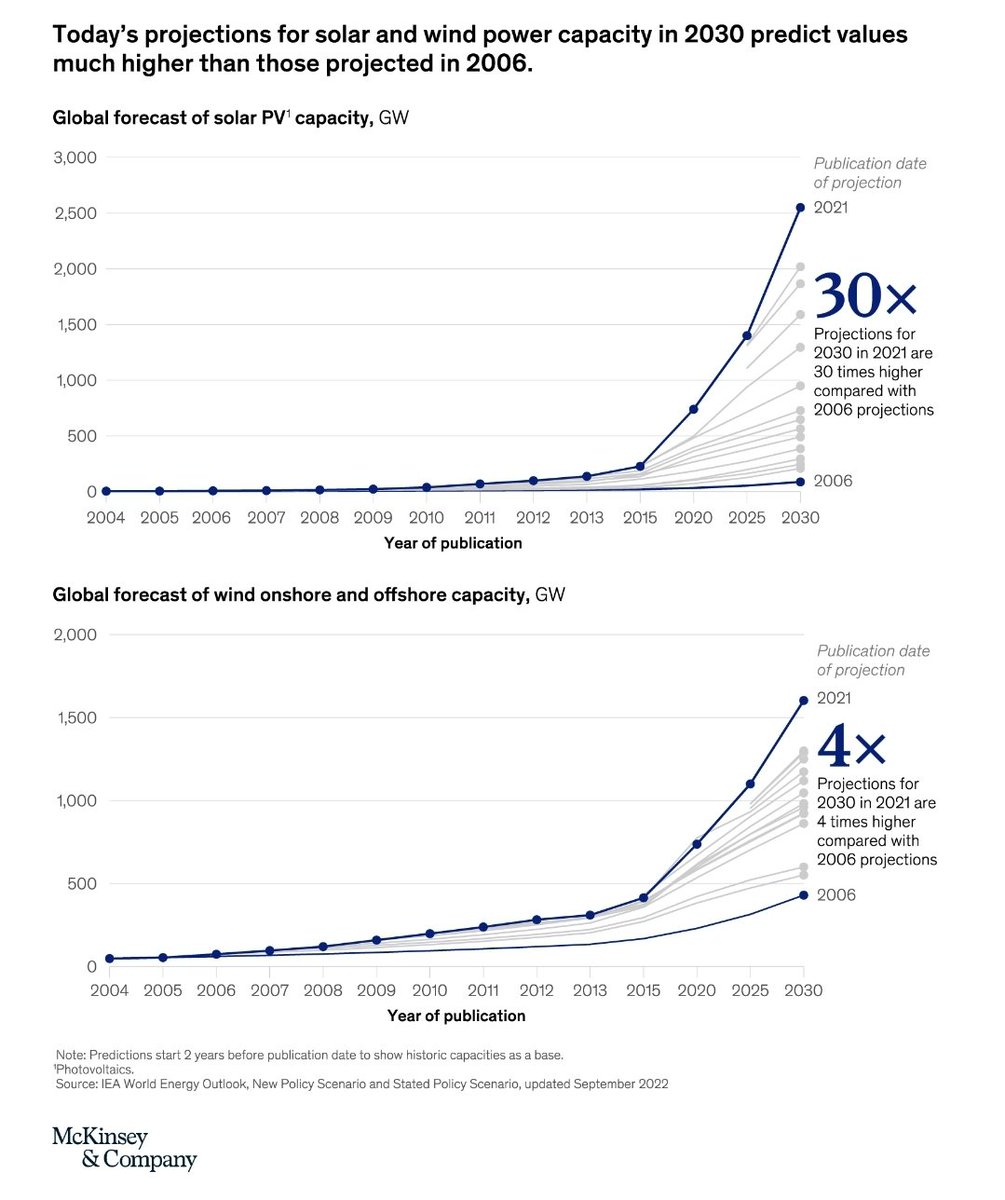
Mark Z. Jacobson
@mzjacobson
Prof-Civil & Env Engineering; Director-Atmos/Energy Program; Research-climate, air pollution, clean/renewable energy; Cofounder-Solutions Project/100% Movement
ID:114040486
http://Stanford.io/windwatersolar 13-02-2010 22:30:54
25,5K Tweets
37,9K Followers
332 Following

Peter Clack What is funny is how a completely bogus claim gets 5,000 retweets. It's as if misinformation is a game.

Peter Clack Simply not true. The math is straightforward:
First, cobalt is not even necessary in car batteries (e.g., LFP and LMFP require no cobalt).
Second, there is enough lithium for 10.8 billion vehicles, and we have only 1.3 billion today.
twitter.com/mzjacobson/sta…

False Peter Clack
Li resource on land: 85.5 Tg
pubs.usgs.gov/periodicals/mc…
Energy dens LMFP bat: 0.23 kWh/kg-LMFP=8.87 kWh/kg-Li
cnevpost.com/2022/07/12/cat…
Capacity Tesla Model S: 70 kWh->7.9 kg-Li/veh
Enough Li for 85.5/7.9=10.8 bil veh (1.3 b today)
AukeHoekstra Prof. Peter Strachan

Time to make that switch
'Switching from fossil fuels to #RenewableEnergy could save the world as much as $12tn (£10.2tn) by 2050'
#ClimateCrisis #COP27 #EnergyTransition #ClimateEmergency #WindWaterSolar #WWS
bbc.co.uk/news/science-e…

#Texas #Solar and #Wind resources saved consumers nearly $28bn over 12 years
'The #Renewables -generated electricity reduced #Pollution , particularly in dense, overburdened communities, by displacing fossil-fueled generation'
utilitydive.com/news/texas-sol… via Utility Dive Mark Z. Jacobson

New Survey
Question
'What solutions for the #Energy and #Environmental crises were most popular with people across the #EU ?'
Answer
'Most people in the EU wanted their country to invest in #RenewableEnergy '
#COP27 #WindWaterSolar #WWS
Mark Z. Jacobson
uk.news.yahoo.com/renewable-ener…

Storage costs need to be added to nuclear and coal plant costs as well as to variable renewable electricity costs.
youtube.com/watch?v=pJY5Oz…
TynetteDeveaux ᴄʟᴇᴀɴ ᴀɪʀ ᴀʟʟɪᴀɴᴄᴇ Sierra Club Canada Fdn @SierraClub #WWS #WindWaterSolar

⚠️SPOILER ALERT⚠️
Taking all the variables into account, renewables are still the most cost effective option.
Mark Z. Jacobson in conversation with TynetteDeveaux of Sierra Club Atlantic Canada and 🇨🇦 NGOs.
youtu.be/pJY5Oze2I_0

Switching the world to 100% #RenewableEnergy will cost $62 trillion, but the payback would take just 6 years, outlines Professor Mark Z. Jacobson
#EnergyTransition #Innovation #Renewables #WindWaterSolar #WWS
cleantechnica.com/2022/09/06/swi…

#RenewableEnergy : An era of remarkable growth
mck.co/3zurnKi via McKinsey & Company
'Over the past decade, the growth of #Renewables has consistently and dramatically outperformed nearly all expectations. Upward corrections of estimates have become something of a ritual.'


Climate change: A communications failure by David Fenton #climatecrisis thehill.com/opinion/energy…

That's because countries have been bamboozled by fossil, nuclear & ag lobbyists pushing for useless solutions:
carbon capture, direct air capture, blue H2, small nuclear, bioenergy.
We must focus on what works and can be implemented quickly: #WindWaterSolar
Prof. Peter Strachan

SMRs - Cause more problems than they solve
youtube.com/watch?v=LFkTX5…
'We need to solve 80% of the problem in 8 years..nuclear has no hope of helping solving the climate problem' ᴄʟᴇᴀɴ ᴀɪʀ ᴀʟʟɪᴀɴᴄᴇ
Sierra Club Canada Fdn @SierraClub Dr Paul Dorfman Greg Dr. HeidiHutner Arnie Gundersen @Energy Nancy S Vann, Esq. (JD)

#RenewableEnergy
'Over the past decade, the growth of #Renewables has consistently and dramatically outperformed nearly all expectations'
'Upward corrections of estimates have become something of a ritual'
#EnergyTransition
Mark Z. Jacobson Arik Ring - Energy Engineering Expert
mckinsey.com/industries/ele…

clara vondrich The OpEd Project Gemma Carolina Gutierrez Neha Misra 🌱 नेहा Outrage + Optimism Yale Program on Climate Change Communication Moira Birss she/ella Diana Best You’re the most inspiring climate activist I know! Love you, clara vondrich. 💨 ☀️ 💧
Mark Z. Jacobson

More good news
UK #windfarms smash #electricity generation record
'Official data shows that wind farms provided more than half of Britain’s electricity on Wednesday'
#EnergyTransition #RenewableEnergy #WindWaterSolar #WWS
energylivenews.com/2022/10/28/uk-…

Ian Fotheringham Prof. Peter Strachan CO2 declines over time upon eliminating its emissions due to uptake by vegetation, soil, and oceans
CO2 will decline to 350 ppm by 2100 if eliminate 80% emissions by 2030 and 100% by 2050
web.stanford.edu/group/efmh/jac…
--> Zero need for synthetic carbon capture or air capture

Exposure to Air Pollution May Raise Risk for Dementia
physiciansweekly.com/exposure-to-ai… CARB U.S. EPA California EPA American Lung Association Greg Laden 🌊 Jeff Smith on Air Pollution (BreatheLife2030.org)